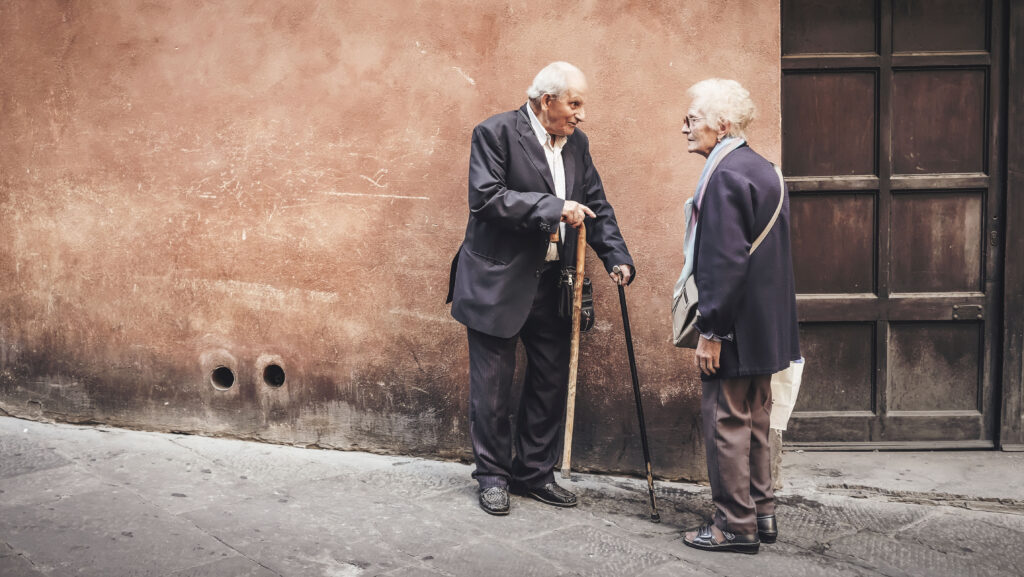How can primary senior caregivers help their loved one feel independent, strong, and capable? And what are the benefits of helping someone feeling independent while they progress into their later years? Today, we’re going to help you answer these questions.
Providing support for your senior loved one while also empowering them to remain independent can prove to be a challenge. While you want to be as helpful as possible to your family member who may be struggling with certain tasks, you also must be careful not to strip your loved one of their autonomy.
At Like Family Personal Care, we work to provide word-class home care services to seniors in need of help. However, we consider our true role in caregiving to be making older people in need feel as capable, independent, and as in-tact with their identities as possible. Doing so helps preserve older adults’ overall quality of life.
As you may know, as we all get older, simple tasks may become harder. If your loved one suffers from conditions such as Alzheimer’s disease, dementia, or Parkinson’s disease, these difficulties may become compounded.
Whether you are taking care of your husband, wife, sister, brother, mother, father, or another loved one, if you want to learn more about how to tactfully and lovingly help your senior family member without compromising their sense of self, this guide is for you.
- Ask for Their Input and Support Their Decisions
First and foremost, always ask for your loved one’s input when making decisions about their healthcare, living situation, and other important personal matters (if they are able to give it). It may seem obvious, but asking someone for their opinion on what will happen in their lives tends to bring them a sense of liberation and autonomy.
When a primary caregiver is used to handling many matters for the loved one they are taking care of, making decisions for them can begin to feel automatic. But, whenever you can, ask your loved one their opinion on matters. Even if an older loved one is beginning to suffer from certain health problems that may cause cognitive impairment, such as in the case of someone who has power of attorney over someone with dementia, asking for your loved one’s input on decisions can fill them with pride.
2. Invest in Voice-Activated Technologies
“Smart home” voice-controlled devices sold on today’s market, typically created by Google, Amazon, or Apple, can help make simple tasks much easier for your loved one and empower them – even if in tiny ways!
Smart devices, such as Echo, Siri, or Alexa can help your senior loved one do the following and more, without having to raise a finger:
- Turn lights on or off.
- Adjust home temperatures.
- Lock and unlock doors.
- Play music.
- Turn television on or off, or switch channels.
- Make telephone calls and texts.
- Figure out the date.
- Get an accurate reading of the weather.
- Set calendar reminders, and receive calendar reminders.
With simple voice activation technologies, senior loved ones can complete activities of daily living with much more ease. Being able to do all these things on their own, senior loved ones will likely feel quite capable of living independently. As you go through your loved one’s home, be sure to consider where they may struggle with certain areas, tasks, and chores and make decisions on what to change accordingly.

3. Make Age-Friendly Home Improvements
Age-friendly home equipment and fall-proof technology can help our senior loved ones remain independent and autonomous for longer. For example, in your loved one’s shower, you could install a chair and a slip-proof mat to prevent falls and offer support.
In the kitchen and in other areas of your loved one’s home, installing items at counter-level can help prevent your older loved one from needing to bend down or reach high to grab something they are in need of. Additionally, be sure that anything that your loved one needs frequently is easy to grab and within reach.
The following products can also make daily tasks much easier for seniors with certain health issues and impairments:
- Non-skid dinnerware can help make sure that those suffering from poor motor control don’t make a mess.
- Grab bars are a great choice for people in need of support while bathing, toiletting, or sitting or standing in any area of your home.
- For seniors who have lost their vision, liquid-level indicators alert people when a cup or other container is full of liquid.
- Pill organizers make remembering medication much easier for seniors.
- Grabbers help senior citizens grab items that may be high or out-of-reach without having to bend or strain.
4. Make it Easier for Your Older Loved One to Get Dressed
Being able to dress yourself properly is an intrinsic part of being a healthy and well-functioning adult. When someone struggles to adequately dress themselves, they may become angry, frustrated, and discouraged. Believe it or not, empowering your loved one to dress themselves can seriously help their self esteem and support their autonomy!
There are plenty of ways to make it easier for your older loved one to dress themselves.
For example, some products make getting dressed much easier for seniors and others suffering from certain health conditions or disabilities. Zipper pulls and button hooks make it easier for senior citizens to get dressed on their own by enabling them to easily grab buttons and zippers on their clothing. Similarly, sock aids help senior citizens put their socks on without having to bend down too far.
5. Openly Discuss End-of-Life Decisions
If you can, try discussing end-of-life decisions with your elderly loved one. Indeed, end-of-life discussions can be painful and challenging, but often prove ultimately rewarding and successful in empowering your loved one to make choices for themselves. You may even consider drafting an advance directive that outlines your loved one’s preferences about the type of medical care they’ll receive at the end of their life.
6. Consider Alternatives to Guardianship
While guardianship must be appointed by a judge and strips senior loved ones of most of their rights, Power of Attorney (POA) and Medical Proxy are both agreements between a primary caregiver and their loved one that preserves many of the senior’s rights.

7. Help Your Loved One Stay at Home
According to a recent study by AARP, 3 out of 4 adults ages 50 and older want to stay in their homes and existing communities as they age, rather than go to a long term care facility or assisted living home. Although assisted living is a beneficial option for many people, the majority of older folks living at home would prefer to stay where they are most comfortable – in the houses they have resided in for years (and sometimes decades).
Like Family Personal Care can help provide relief to primary caregivers in Washington County, Utah, and Davis County, Utah. We provide respite care to primary caregivers in need of a break from caregiving, and work feverishly to help those suffering from diseases such as Alzheimer’s disease, dementia, Parkinson’s disease, and disabilities maintain a high quality of life. Call us at 435-414-8551 today to learn more about our caregiving services, special rates, and how we can help you and your loved one live a happy, joyous, and free lifestyle.
Overall, if you are a primary caregiver to an elderly loved one, encourage them to make choices whenever possible and always take the opportunity to honor their independence. Instead of telling your loved one what to do or doing something for them, give them the tools to help them do it for themselves whenever you can! You’d be surprised how much it may help your senior loved one’s sense of esteem and independence.




